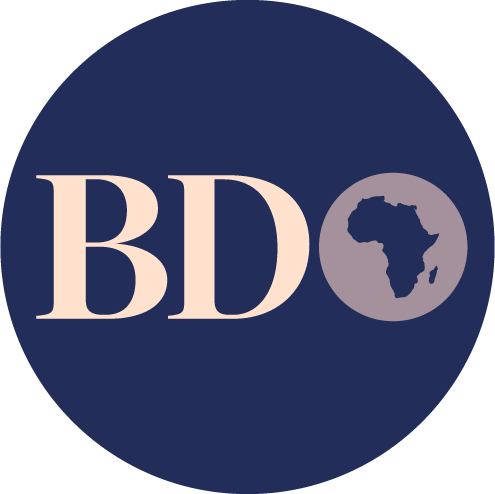Top firms in Kenya are increasingly hiring more women and placing some at the centre of decision-making in the boardrooms as the race for gender equity at workplaces gains momentum globally.
Many corporates including BAT Kenya, Absa Kenya, Co-operative Bank of Kenya, KCB Group and Safaricom have crossed the 40 percent mark for the proportion of women in senior leadership positions.
The progress has come on the back of these firms implementing policies and practices that promote gender equality, including equal pay for equal work, generous maternity and paternity leave, flexible working hours for new mothers and offering opportunities for advancement and leadership for women.
Still, the firms are alive to research that has shown that companies with more women in senior positions are more profitable, more socially responsible, and provide safer, higher-quality customer experiences—among many other benefits.
Read: Kenya’s healthcare sector scores big in global gender parity ranking
And of course, there is a clear moral argument for increasing diversity among top management teams on the back of the push by shareholders and financiers.
The Nairobi Securities Exchange (NSE), for example, joined the 30 percent club, a global campaign, to increase gender diversity in boards and senior management at the workplace.
The NSE drive has helped listed firms deepen their focus on diversity, and put their sights on gender parity.
The Kenya Institute of Management (KIM) Board Diversity and Inclusion report shows the share of women in NSE firms’ boards has risen from 12 percent in 2012 to hit 18 percent in 2015, 21 percent in 2017 and 36 percent in 2021.
At 36 percent, KIM said, the figure was above the global average of 23.3 percent. The institute is working on a new report to be released later in the year.
Catherine Musakali, chairperson at Women on Boards Network (WOBN), an initiative that champions for women into board leadership through training and mentorship, says beyond the listed companies, more women are taking up boardroom positions as firms seek to diversify their skills set.
“The ground is shifting. We are seeing younger women joining boards and they are challenging the status quo and adding value on both listed and non-listed firms,” said Ms Musakali, adding that of WOBN’s more than 1,000 members, about 60 percent already sit on boards.
“I see progress and I can bet that when the next data for NSE firms is out later this year, the numbers in terms of diversity will be better. That is because we are seeing more and more requests for nomination of women to sit on boards. When you look at listed companies only, the number of female board chairpersons is also going up.”
East African Breweries PLC (EABL) says it increased the representation of women in senior leadership roles to 47 percent by end of June last year from 37 percent in the same period in 2022, moving it closer to hitting the target of 50 percent by end of 2030.
The beer maker has since 2015 been partnering with Strathmore Business School to run a ‘Women in Leadership’ programme that has so far built leadership capability of over 360 women in its business.
EABL says it believes that diversity and inclusion at all levels are necessary for growth of an organisation and has also structured its graduate programmes and mid-career development programmes to ensure they have an equal intake of women.
“We believe that the most inclusive and diverse culture makes for a better business and a better world. We have been passionate about changing the narrative around the underrepresentation of youth, women and people living with disabilities in employment and supply chains across our business and have made empowering them a business priority,” said EABL.
Such a deliberate push has seen some organisations like KCB, NCBA and Absa Kenya manage to push the share of women in their total workforce above 51 percent.
KCB, for instance, last year saw the number of women employees rise by 1,017 to hit 6,233 to take the share of female employees to 51 percent and outnumber men for the first time ever. This was a rise from 2018 when their share was at 43 percent.
“As a result of our deliberate efforts to entrench diversity and inclusion at the workplace, the proportion of female employees in the organisation rose to 51 percent in 2023,” said Paul Russo, chief executive at KCB Group.
Read: Women outnumber men in KCB workforce
Such progress has put women on course to catching up with men in labour force participation as more employers embrace gender parity policies at a time multiple studies are showing companies putting women in boardrooms are posting better performance.
A study by Catalyst, a global NGO that is pro building conducive workplaces for women, found in a study, Fortune 500 companies with three or more women on their boards significantly outperformed those with low representation by 84 percent, 60 percent and 46 percent on returns on sales, invested capital and equity respectively.
Safaricom, which targets to have 45 percent of leadership positions occupied by women, continued to make progress, with new hiring and promotion in senior roles being 19 in the year ended March 2024.
The hiring and promotion of the 19 women into leadership roles raised the share of female employees in senior positions at Safaricom to 42.4 percent from 40 percent in the previous year. The telco has already achieved a 50:50 gender split in its boardroom while the overall workforce is now 49 percent women.
